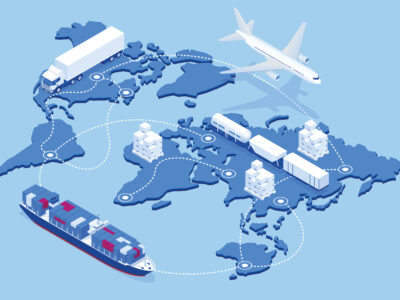Recently I was asked “What is your vision for the future of the cloud?”

This set me thinking about the likely longer term role of the cloud in our lives. At the moment the cloud is in its early stages. In enterprise it has garnered some traction for the long term storage of records, email, documents and logs. But it is in the consumer arena that cloud is getting a more enthusiastic reception. Ubiquitous applications and services are springing up as cloud based products capture the attention of voracious digital consumers.
Why are we seeing such different responses from consumers and enterprise?
Hungry for innovative products and services, consumers are driven by curiosity, convenience, peer acceptance, by social momentum and by sheer novelty. They are more willing to accept a measure of risk when adopting innovative technologies, than the more cautious enterprise IT buyers.
This is borne out by the rapidly growing number of cloud services and cloud based software applications for mobile devices, and the tremendous amount of venture funding finding its way to these areas.
Enterprise IT is far more concerned with the security and data ownership issues of public cloud infrastructure. Understandably they cleave to technologies that they have experience and expertise with. As a result they are often averse to radically innovative products and solutions, even if those solutions promise important benefits like ease of use, scalability, reduced operating costs etc.
For now at least it seems that the cloud will be more a consumer phenomenon, with an increasing emphasis on mobile cloud based applications. Thus mobile devices will be key to the future of the cloud.
What will that industry look like in 10 or even 20 years’ time?
We have heard people say the cloud will be an ‘on demand instant gratification engine’. Mostly they are referring to the power and potential of Storage, Platform and Infrastructure as a service, but given the emphasis on consumer adoption of cloud services, I would suggest an alternate interpretation.
As devices become smaller and more powerful, and as wireless connectivity becomes ever more ubiquitous, users and their mobile applications will have more integrated access to cloud based data / search, storage, compute power, communications etc.
To understand how this will affect the future of the cloud it is essential to consider what it is to ‘integrate’ a person with the cloud?
Ease of access is the most obvious aspect of integration:
Initially this will probably focus on wearable mobile devices, with voice recognition and natural language interpretation as a means to more easily access search and data capabilities. As hardware size decreases relative to storage and compute power, it is likely that we will have mobile devices that look like wireless cell phone headsets or even like earrings. Bluetooth ocular display on a worn lens, probably with an inbuilt camera. Increasingly diminutive and intimate devices are becoming as much a part of life as clothes.
Delegation as integration:
 To date, as consumers we have readily accepted mobile computing devices as a means to delegate memory tasks. (When was the last time you bothered to memorize a telephone number?).
To date, as consumers we have readily accepted mobile computing devices as a means to delegate memory tasks. (When was the last time you bothered to memorize a telephone number?).
In addition to delegating memory tasks, we are also going to be able to delegate data collection, computational, analytic and learning tasks – effectively giving our serial cerebrum a parallel compute counterpart.
Mobile devices will ultimately provide us with another set of eyes, with which to collect information, store and share it with one another. They will allow us to read, write and talk in real time in other languages, to delegate to research avatars, who can undertake tasks such as: data collection, extraction, distillation and dissemination for us. We might also delegate tasks such as shopping and sourcing.
All of this focuses on just a dozen or so fast moving areas of technology that are more likely to surpass these predictions than fail them.
Underlying all of this fascinating potential though are two technologies that are the life blood of cloud: Cloud storage technologies, and Cloud compute technologies.
 The cloud storage technologies of the future will need to be truly hardware agnostic because they will have to outlive the quickly evolving storage hardware that they run on. They will need to be massively scalable, because in the future we have just described, each man woman and child will generate 100s perhaps 1000s of terabytes in their life time. These storage solutions will need to be tremendously resilient and robust because the expected life span of that data is growing quickly. They will need to be self-managing and self-healing because at this scale manual processes and migrations are simply impossible. And they will have to be intrinsically parallel in the way that data is accessed, if they are going to be able to accommodate the massive demands that will be placed on them.
The cloud storage technologies of the future will need to be truly hardware agnostic because they will have to outlive the quickly evolving storage hardware that they run on. They will need to be massively scalable, because in the future we have just described, each man woman and child will generate 100s perhaps 1000s of terabytes in their life time. These storage solutions will need to be tremendously resilient and robust because the expected life span of that data is growing quickly. They will need to be self-managing and self-healing because at this scale manual processes and migrations are simply impossible. And they will have to be intrinsically parallel in the way that data is accessed, if they are going to be able to accommodate the massive demands that will be placed on them.
This description fits only one existing type of storage technology today – Object storage technologies already have these characteristics, although they are not widely adopted yet due mostly to perceived performance limitations. That said, one object storage solution claims to have solved the performance issue. And based on their Telenet case study, Scality’s RING Organic – may have proved that it is the technological leader of this young pack
The cloud itself is the result of integration. Virtualization of compute and storage units removed many of the barriers that prevented different types of hardware and software from sharing data, compute and storage capabilities. It integrates a vast and shockingly disparate collection of hardware.

But there is still a tremendous amount of hardware that will be retired rather than integrated into the consistently accessible cloud of the future.
What’s more there will be many enterprise IT professionals who would prefer to retire than be a part of this radically foreign technological future.
Monique Shefer is a technology analyst and strategic consultant to the software and software as service industries. Shefer is currently working for Scality – Storage System Pioneer and developer of RING Organic Storage.










Comments